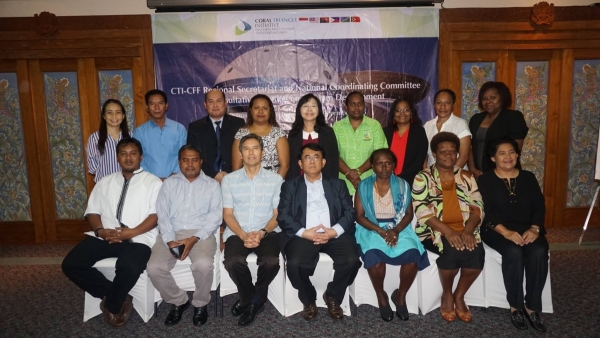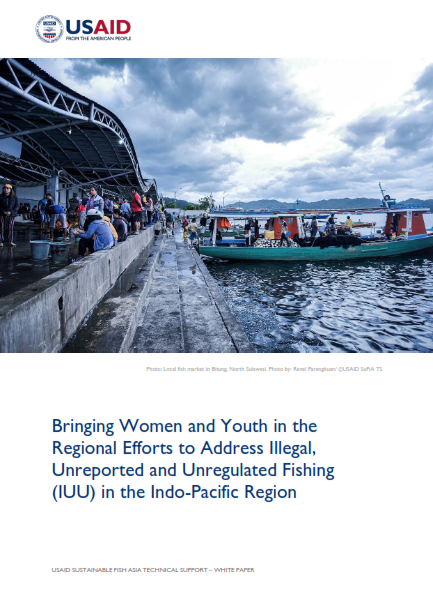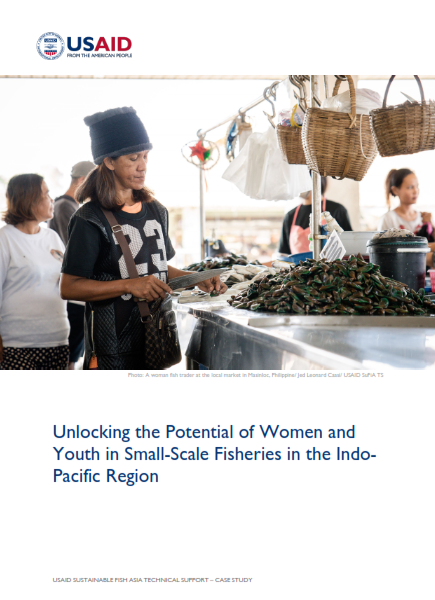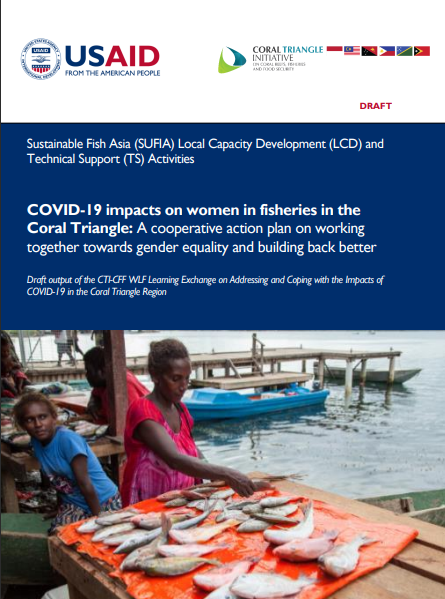Coral Triangle Initiatives’ National Coordinating Committee (NCC) meets over program development

A 2-day Consultative Meeting in Bali between RS CTI-CFF, NCCs Member States and Development Partner
Following up the recommendations of the Member States during SOM-12 and the 6th Ministerial Meeting to share and consult with the CT6 over future activities and programs, the Regional Secretariat organized a consultative meeting between the representatives from the CT6 Member States with relevant Development Partners. The objectives of the meeting are to obtain NCC’s insights and guidance to improve the proposed work plans and identify gaps; while keeping in mind the targets of the Regional Plan of Action (RPOA).
The meeting program was planned over two-days; from 2-3 December 2016 in Bali, Indonesia, immediately after the Seascape Working Group Meeting led by Conservation International. The meeting was attended by NCC representatives from Indonesia, Malaysia, Papua New Guinea, Solomon Islands, and Timor-Leste; the Chair of the Local Government Network (LGN); Development Partners - the United States Agency for International Development (USAID); and World Wide Fund for Nature (WWF).
The first day of the meeting focused on the potential support from USAID Regional Development Mission for Asia (RDMA) based on the draft USAID/CTI Work Plan. The agenda for the second day focused on the discussion over the Terms of Reference for the 3rd Fisher Forum; the Regional Workshop on the Sustainable Management of Shared, Straddling and Highly Migratory Fish in the Coral Triangle Region (Tuna Governance); the COASTFISH Workshop; and CTI-CFF University Partnerships for Capacity Building.
The United States Agency for International Development (USAID) was represented by Mr. Alfred Nakatsuma, the Regional Environment Office Director. In essence, Mr. Alfred explained to the meeting that USAID is very keen to continue supporting the Coral Triangle Initiative since the Coral Triangle Support Program (CTSP) ended in 2013.
On August 5, 2015, Secretary of State John Kerry announced that the U.S. Agency for International Development's Oceans and Fisheries Partnership (USAID Oceans) project with an initial commitment of $4.3 million that will combat illegal, unreported, and unregulated (IUU) fishing and seafood fraud in the Asia-Pacific region.
"The catch documentation and traceability system established by USAID Oceans will improve the transparency of Asia's seafood supply chains, ensuring that fish is legally and sustainably harvested," said Secretary Kerry at the 22nd Association of Southeast Asian Nations Forum in Kuala Lumpur, Malaysia. "Traceability is an essential part of our global fight to conserve marine resources and protect the health of our oceans."
USAID is partnering with the Southeast Asian Fisheries Development Center (SEAFDEC) and the Coral Triangle Initiative (CTI) to strengthen regional, sustainable fisheries management by developing an electronic catch documentation and traceability system to track species at a high risk of being illegally traded or mislabeled. This system will harness the latest science, technology, and innovation to ensure that fish, shrimp and other marine resources are legally caught and properly labeled. Eliminating IUU fishing, which undermines efforts to conserve and manage shared fish stocks, will level the playing field for legitimate fishers and ensure the sustainability of our shared ocean resources (find link here).
In addition, Mr Alfred informed the meeting that in December, a final rule shall be announced to implement the Seafood Import Monitoring Program to address illegal fishing and seafood fraud in the United States. The final rule will require imported seafood at risk of illegal fishing and seafood fraud to be traced from the fishing boat or farm to the U.S. border, helping to stop illegally caught and mislabeled seafood from entering the United States (please see here for more information).
Therefore, the Coral Triangle Initiative is a great platform to introduce, inform and build capacity within the CT region in light with the new rule on seafood imports. This new rule shall impact on many fisheries export countries in terms of administrative procedures, legal implementation; and enforcements. The meeting further discussed how this ruling shall impact existing catch, documentations, and traceability programs such as those imposed by the European Union through its own IUU Regulations and those designed by ASEAN; i.e. the ASEAN Catch Documentation System (ACDS). Whilst the European Union IUU approach heavily depended on government implementation through rigid enforcement procedures, the U.S approach to IUU shall be grounded on public-private partnerships. The burden of compliance shall be on the fisheries-based companies for them to be able to export into United States.
As such, the draft USAID/CTI Work Plan focuses its programs on IUU and CDT matters in terms of capacity building within the CT region, leveraging on the experts already working on the USAID Oceans Program. Other relevant CTI programs such as further development of the CT Atlas to include IUU and CDT elements are explored; cross-cutting themes such as the Women Leaders’ Forum (WLF); the Regional Business Forum (RBF) and the Local Government Network (LGN) were also discussed and agreed on principal to be included in the draft USAID/CTI Work Plan to complement the proposed sustainable fisheries management programs.
In conclusion, the Regional Secretariat is tasked to amend the draft USAID/CTI Work Plan in accordance to the discussion of this meeting and re-submit and distribute to all NCC members including the Minutes of Meeting for final approval and submission to USAID for its further process.
The following day, on 3rd December 2016, a separate session led by Ms. Astrid Lim, the Technical Working Group Coordinator with support from Dr. Ingles (WWF Coral Triangle Program) were held to discuss on four (4) matters; (i) the Terms of Reference (TOR) for the Third Fishers Forum; (ii) Terms of Reference (TOR) for the Regional Workshop on the Sustainable Management of Shared, Straddling and Highly Migratory Fish in the Coral Triangle Region (Tuna Governance); (iii) Terms of Reference (TOR) for the COASTFISH Workshop; and (iv) presentation on CTI-CFF University Partnership for Capacity Building: MOU with Universities. These were brought to the attention of the NCCs based on Senior Officials’ Meeting decisions to meet with the targets set out in the CTI Regional Plan of Action.
(i) EAFM SOM-12 Decision #1: Endorsed the conduct of the 3rd Fishers Forum with the theme, “Sustainable Coastal Fisheries Through Local Innovation: Scaling Up Effective Models for IUU Reduction, Catch Documentation and Local Investments” subject to endorsement by member countries, the Terms of Reference for the 3rd Fisheries Forum was presented to the CT6 focal points for their review, comments, and approval. The Coral Triangle Fishers Forum is a regional platform hosted by the CTI-CFF, designed to enable fishers and other industry stakeholders to share experiences and perspectives about the issues in the CT Region that affect them, and find common ground in achieving sustainable and equitable fisheries. Initiated by WWF Coral Triangle Program, the forum gathers regional stakeholders, especially local fishers and industry representatives, to share experiences and identify solutions around specific problems faced by fisheries in the region. The Forum is proposed to be conducted in the second quarter of 2017.
(ii) Under Target 3 of Goal 2 in the RPOA: ‘Effective measures in place to help ensure exploitation of shared tuna stocks is sustainable, with tuna spawning areas and juvenile growth stages adequately protected.’ To achieve this, two Regional Actions were identified and they are: 1) Develop a collaborative work program on this topic that covers a wide range of activities, such as jointly supported research, information-sharing, strategies for protection of spawning and juvenile growth areas, and financing mechanisms, and 2) Establish an informal CTI Forum on Tuna Governance.
EAFM SOM-11 Decision #2: Tasked the EAFM WG to coordinate with the Regional Secretariat in planning for a regional workshop on Sustainable Management of Tunas in 2016. The priority actions as mention before reflect the importance of tuna among the CT countries as an economic driver, as an important food security stabilizer, and as provider of livelihoods to significant number of small scale fishers. A regional collaboration on managing tunas is imperative since tunas found in the CT Region are either highly migratory, straddling or shared between countries. The economic value of tunas in the CT is staggering with exports alone placed at almost a billion dollars in 2011. These figures may be underestimates considering the volume of unreported and under reported catch.
(iii) Target 2 of Goal 2 of the RPOA: Improved income, livelihoods and food security in an increasingly significant number of coastal communities across the region through a new sustainable coastal fisheries and poverty reduction initiative (COASTFISH). Pursuant to EAFM SOM12 Decision #2, Endorsed the conduct of COASTFISH Workshop in 2017 subject to the endorsement of member countries. The focus of the workshop is to develop a ‘common regional framework for the CTI COASTFISH Initiative’ and to develop a financial investment strategy at regional and national levels.
(iv) Lastly, the Program Coordinator, Dr. Muhammad Lukman presented an initiative by the Regional Secretariat to initiate the Scientific Advisory Group (SAG); the CTI-CFF University Partnership. The role of universities in national and regional capacity building development is well-recognized as they provide a pathway to improve human resource capacity and much of the science and technology innovations needed to foster the development of humanity.
In 2016, CTI-CFF signed MoUs with prominent universities from Indonesia - Bogor Agricultural University; Institut Teknologi Sepuluh Nopember; Sam Ratulangi University; and Hasanuddin Univeristy. Others include MOUs with University Malaysia Terengganu (Malaysia) and James Cook University (Australia). The CTI-CFF University Partnership aim to promote marine conservation, sustainable fisheries, and food security through educational and professional accredited capacity building, research, and outreach activities within CT6 Member States under the CTI framework . All of the Member States have committed, through CTI-CFF, to lead effective, highly participatory multi-stakeholder alliances and to achieve a rapid improvement in institutional and human capacity.



